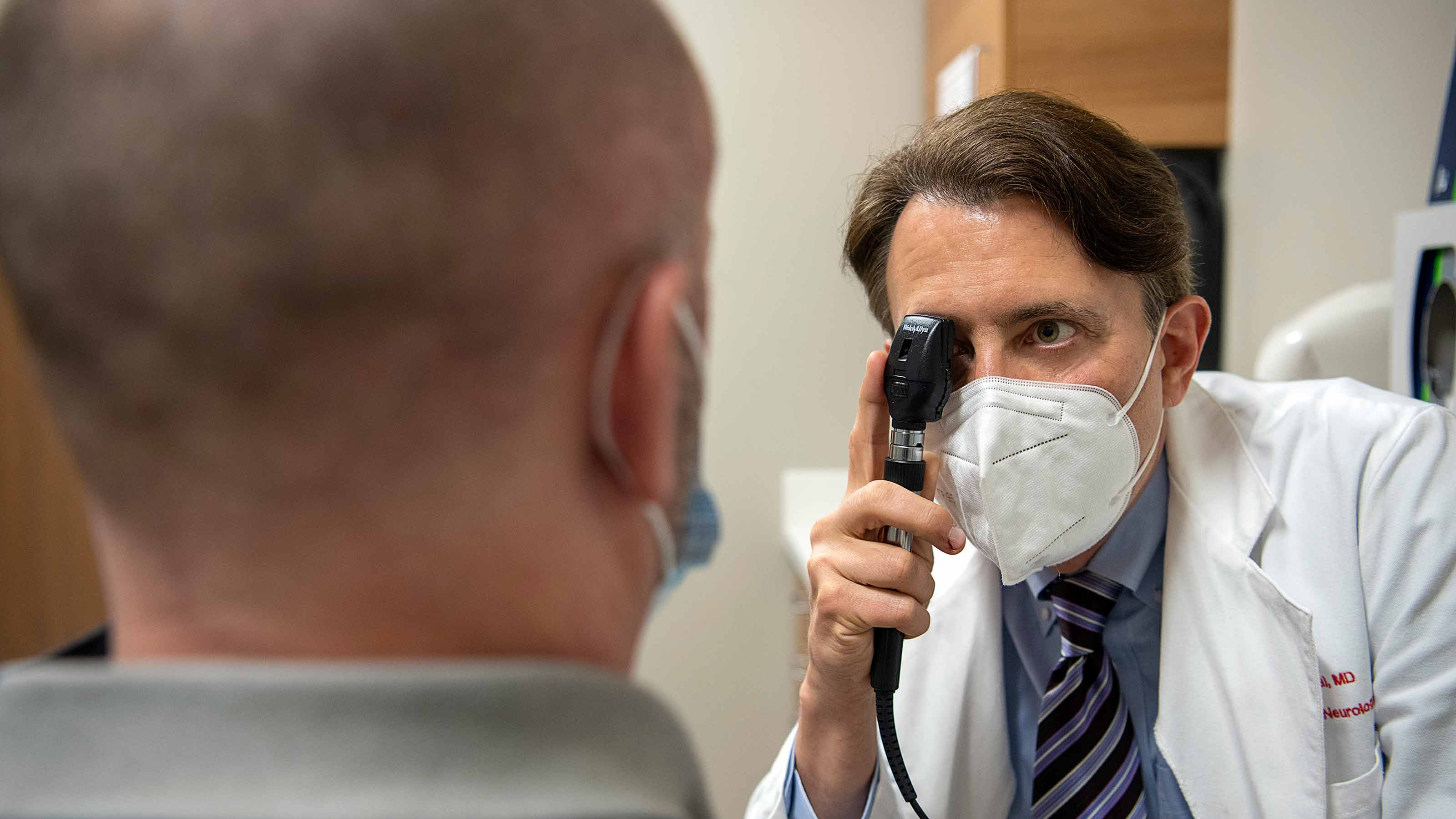
When it comes to providing care for multiple sclerosis (MS), Parkinson’s disease, dementia and other neurological disorders, the days of one-size-fits-all treatment are long gone.
At The Ohio State University Wexner Medical Center, the neurology team has established more than a dozen new clinics that centralize interrelated services needed by patients with neurological diseases and conditions. They’re called multidisciplinary specialty clinics, and they aim to streamline services and enhance convenient, personalized care. These clinics are staffed by teams of highly trained doctors, nurses and other specialists, and dedicated to the diagnosis and management of individuals with specific neurological diseases.
“The diseases we treat present in such diverse ways, and each patient faces their own set of challenges,” says Benjamin Segal, MD, chair of the Department of Neurology. “The key to enhancing patient outcomes is to individualize treatment as much as possible. That’s where our specialty clinics come in.”
The neurology team’s newest specialty clinic, the Parkinson’s Disease Multidisciplinary Clinic, opened in July 2022. It will serve as a “one-stop shop” for patients with Parkinson’s disease to receive all the care they need without having to shuffle between appointments in different locations. At the clinic, patients can address symptoms like tremors, stiffness, unsteadiness/poor coordination, memory difficulties and fatigue with a team that includes physical, occupational and speech therapists, and neuropsychologists and psychologists, along with subspecialty-trained movement neurologists and advanced practice providers. At the same time, they can address treatment options for other issues that are common to Parkinson’s disease, like sleep disturbances, swallowing difficulties and bowel problems. If patients suffer from mental health issues, they can also see a psychologist and social worker for immediate support.
The Parkinson’s Disease Multidisciplinary Clinic is just one example of a specialty clinic that brings together experts across disciplines to support patients with personalized, comprehensive treatment plans. Clinics are run within existing neurology clinics, so they don’t require any additional infrastructure to establish or maintain.
To illustrate the value of these clinics in his own practice, Dr. Segal describes the options available to patients with multiple sclerosis. “There is only so much we can accomplish in a one-hour appointment with a patient,” he says. “In our MS specialty clinics, we have assembled teams of experts to consider a patient’s history, circumstances and goals to ensure that all aspects of life with MS are being addressed.”
Currently, the Multiple Sclerosis/Neuroimmunology Division of the Department of Neurology runs six different specialty clinics:
Multiple Sclerosis Psychotherapy Clinic: Patients receive evidence-based psychotherapy to treat depression, anxiety, fatigue and other symptoms they may experience as they adjust to life with a chronic illness.
Neuro-Rheumatology Clinic: A joint effort between Neuroimmunology and Rheumatology, this clinic cares for patients with neurological manifestations of inflammatory and rheumatologic disorders, including neuro-psychiatric lupus, vasculitis and Sjogren’s disease.
Neurosarcoidosis Clinic: Neuroimmunology specialists work with sarcoidosis specialists within Pulmonary Medicine to better understand and treat neurosarcoidosis, a rare disorder characterized by chronic inflammation of the central nervous system.
Quality of Life (QOL) Multiple Sclerosis Clinic: Before being referred for symptom management, patients work with a provider to learn more about their disease, share their unique experience and set specific goals for improving their quality of life.
Multiple Sclerosis Multidisciplinary Symptom Management Clinic: A diverse team of specialists, including physical therapists, neuropsychologists, psychotherapists, neuro-ophthalmologists, occupational therapists and sleep disorder specialists work together to treat all symptoms of MS in one place.
Multiple Sclerosis Fatigue/Sleep Clinic: Patients suffering from fatigue can visit this clinic to undergo a sleep study and develop a customized plan to improve the quality of their sleep and feel more alert during the day.
While patients with multiple sclerosis have access to the greatest number of specialty clinics at the Ohio State Wexner Medical Center, other clinics are cropping up quickly to serve other populations, like pregnant women with epilepsy, young-onset dementia patients or patients suffering from rare neuromuscular diseases like myositis and myasthenia gravis.
“By offering the full continuum of care in one location, with a multidisciplinary team, we give patients the best possible chance to live a full, symptom-free life,” Dr. Segal says. “This approach is the wave of the future, and it’s happening right here at Ohio State.”

Learn how Ohio State is centering neurology care around you
See all the neurology specialty clinics at the Ohio State Wexner Medical Center
Learn more




